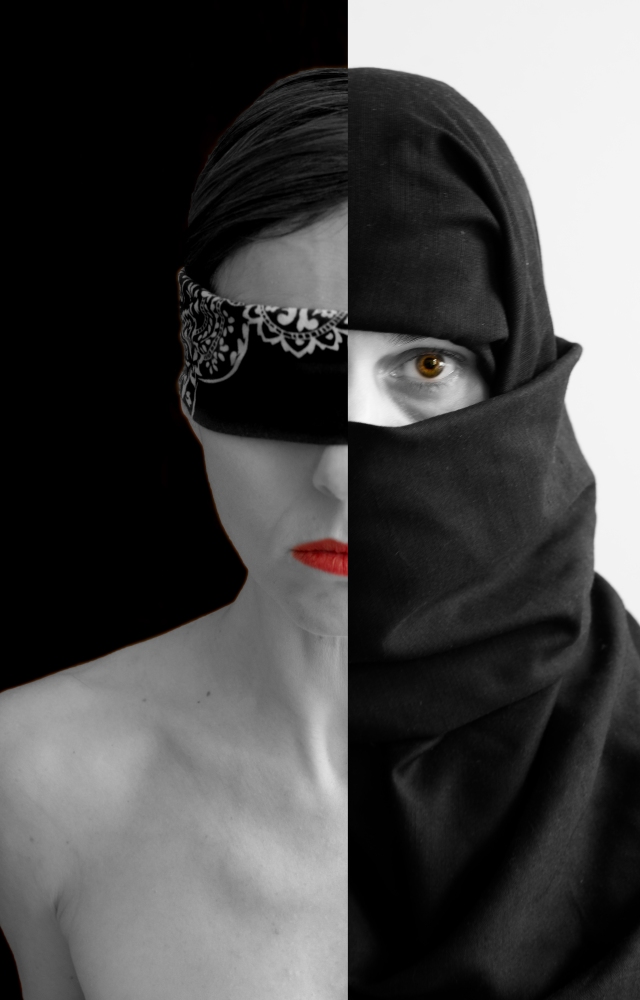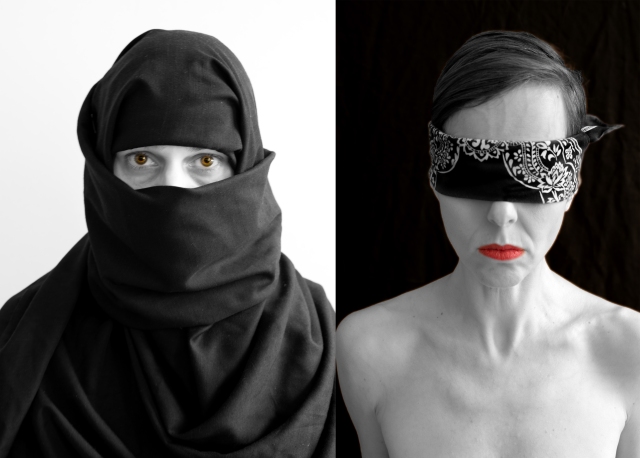
To be born a woman has been to be born, within an allotted and confined space, into the keeping of men. The social presence of women has developed as a result of their ingenuity in living under such tutelage within such a limited space. But this has been at the cost of a woman´s self being split into two. A woman must continually watch herself. She is almost continually accompanied by her own image of herself. From her earliest childhood on she has been taught and persuaded to survey herself continually.
This is what the English Art Historian John Berger says in his book “Ways of Seeing”. In this analysis he speaks of European tradition of female representation in arts and popular culture. In our culture women are objectified, by others – but most cruelly by themselves, relying and depending on their appearance.
A woman´s denial to please, her lack of beauty can never be outweighed by intelligence, success or talent – proved again, most notably and recently so at this year´s Oscar celebration: The majority of the present Hollywood celebrities – men and women alike – refused to applaud the Oscar winning Costume designer Jenny Beavan on grounds of her refusal to please. Beavan – while obviously an expert in fashion and design – chose a leather jacket instead of the customary revealing evening gown which makes her fellow female Oscar con- and attenders look like participants in a beauty pageant.
Women are far from equality, and that goes from India through Saudi Arabia to Europe to the United States and the Americas. It is only the degree of subtlety that varies.
The years I spent in Argentina were greatly marked by my doubts of my own femininity. I arrived a sportive and admittedly boyish young woman. When I left my lips were red, my lashes luscious; my arms were thin but my earrings massive. The changes had happened gradually and I myself had been unaware of how much every other woman had turned into someone I compared myself to: a competitor. Taller- thinner- better looking. But by which standard, on whose scale?
The Judgement of Paris was another theme with the same inwritten idea of a man or men looking at naked women, but with the added element of judgement. Paris awards an apple to the woman he finds most beautiful. Thus beauty becomes competitive. Today the judgement of Paris has become the beauty pageant. Those who are not judged beautiful are not beautiful. Those who are, are given the prize, which is to be owned by the judge – that is to say, be available for him.
(John Berger, Ways of Seeing)
Years later I spent some time in Iran – and despite my anxiety towards the mores police and the notorious oppression of women, I had a strange feeling of liberation through the total absence of nudity and display of female flesh in the streets – there were no over sexed advertisements, no catcalls, no whistling: what a simple scarf can do…
I found myself thinking about high heels. High heels were painful, and, for me at least, expensive, because they made walking more difficult and I ended up taking more taxis. Yet there were many times when I wore heels to work-related events in New York, specifically because I felt it made people treat me with more consideration. Why, then, would I refuse to wear a head scarf, which brought a similar benefit of social acceptance, without the disadvantage of impeding my ability to stand or walk?
(Elif Batuman, in The New Yorker, about her stay in Eastern Turkey)
So we find ourselves either in a world where a woman needs to hide her looks because it can´t be expected of a man to control his sexual drive, or in a world where a woman has to emphasize her beauty and most importantly sexual desirability to be respected? Which one is better? None, I say, because they are both just two variations of the same male dominance and therefore the male point of view, the male gaze and the objectification of women.
What varies, though, with the level of subtlety, is the level of physical oppression. While in Saudi Arabia women do get stoned, women in in the West are discriminated, glass-ceilinged, or in its mildest firm, the case of costume designer Beavan, simply shunned. Yet none of these levels is acceptable. None.

Stand up, all victims of oppression
For the tyrants fear your might
Don’t cling so hard to your possessions
For you have nothing, if you have no rights
Eugène Potter, The Internationale
The Internationale. the workers´anthem, was written by a member of the Parisian commune, a radical socialist and revolutionary government that ruled Paris for two months before it was brutally overthrown by the regular French army in 1871. In times of the Industrial Revolution, in times of poverty and oppression, in times of Oliver Twist and Charles Dickens, the Internationale called for the workers, in fact for all the victims of oppression, to stand up and unite – for strength lies in numbers.
Yet women don´t unite, or only reluctantly so. There seems to be a dramatic lack in solidarity. Because women from the far ends of the world don´t recognize each other´s struggles, fail to identify as the victims of the same oppression because it comes as divers? Because they fail to recognize the one oppressor to unite against? Who is woman´s tyrant, though? Who is this Man?
Women´s fight for her rights cannot be fought on barricades and blazing fires. For while sometimes women´s oppressors are indeed their husbands, fathers, uncles, bosses or male co-workers, or just some anonymous stranger in a dark street or the infinite internet, it really is the system. Patriarchy, which, like a viral disease, has afflicted men and women alike – and which, like any other disease, is the harder to detect, diagnose and cure the milder, the more subtle it appears. A system programed into women, who after thousands of years of oppression and assimilation seem to see in another women first the competitor, and only then – if ever – a fellow victim of oppression.
While the burka has become a synonym for female oppression, there are in the first, the Western World women who claim not to be discriminated against, not shunned nor oppressed. Working women in high heels on eternal diets, forty year-olds aspiring to pass for thirty, boob jobs, nose jobs, gym-maniacs on Uppers and Botox. Seriously, there might be women who have the financial, economic and social independence to not care how they are being looked at, regarded, judged. There might be. It might even be you, my estimated reader. Yet the majority of women is oppressed, stoned, discriminated, shunned or even only cat-called and there is reason to unite.
Deny the male gaze.
Don´t cover up.
Open your eyes.
Look.
